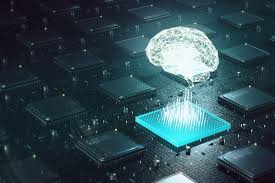Source: drugtargetreview.com
Researchers have developed a novel method for producing lung cells in vitro using machine learning. The creators of the artificial intelligence technique believe their work will improve models of lung disease and laboratory testing of treatments.
The collaboration between the Center for Regenerative Medicine (CReM) at Boston University and the Carnegie Mellon University (CMU), both US, highlighted that treating induced pluripotent stem cells (iPSCs) with growth factors can result in an impure collection of target cells that do not retain the characteristics of the target cell for prolonged periods of time.
“Therefore, we developed a combination of techniques that examines the gene expression of thousands of single cells combined with DNA barcoding of each individual cell and machine learning to build up a dynamic picture of what factors favour cells that go on to be lung cells in our system. Using this knowledge we were able to improve our methods for generating lung cells so that we can now create more relevant cells that keep their cell identity in a dish for more than one year,” explained Dr Killian Hurley, researcher at the Royal College of Surgeons in Ireland and study co-author.
The researchers hope the technique will lead to advances in treatments for idiopathic pulmonary fibrosis, chronic obstructive pulmonary disease (COPD), alpha-1 antitrypsin deficiency and neonatal respiratory distress or early-onset interstitial lung disease.
“The machine learning methods we developed for this study can also be applied to studies of other tissues and organs,” said Dr Jun Ding, a post-doctoral fellow at CMU. “We hope that our newly developed techniques for generating a pure, unlimited supply of cells using patients-derived stem cells can make possible new treatments or cures for diseases.”
Co-corresponding author Dr Darrell Kotton, David C. Seldin Professor of Medicine and Director at CReM, added: “The key hurdle to understanding what goes wrong with an individual patient’s lung cells has been our inability to access those cells or to grow them in the laboratory. This approach allows us to now engineer from any individual patient those very finicky cells and to introduce bar codes into those cells that allow us to track and understand each cell and all their progeny over time in the laboratory dish. The result is an inexhaustible source of new lung cells that can be prepared from any patient of any age.”
